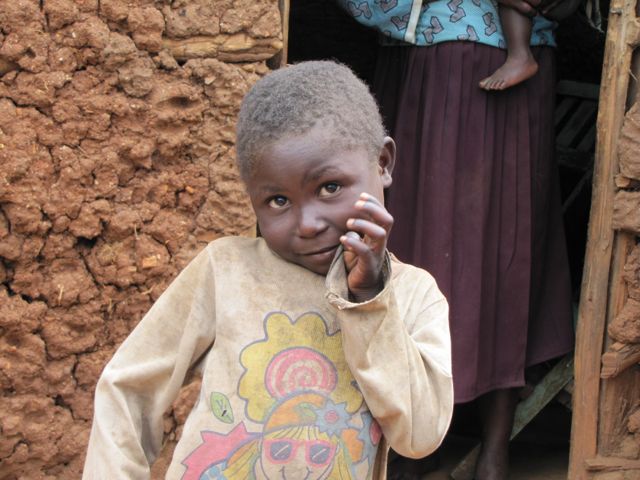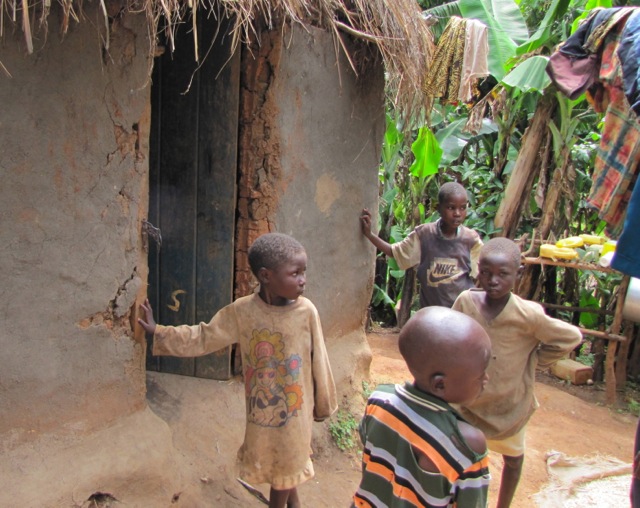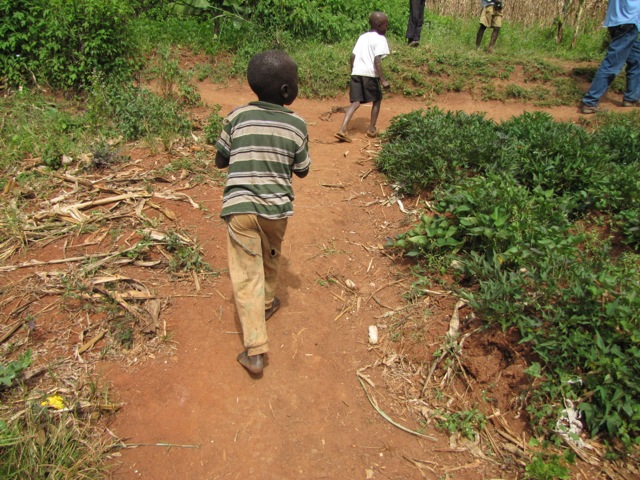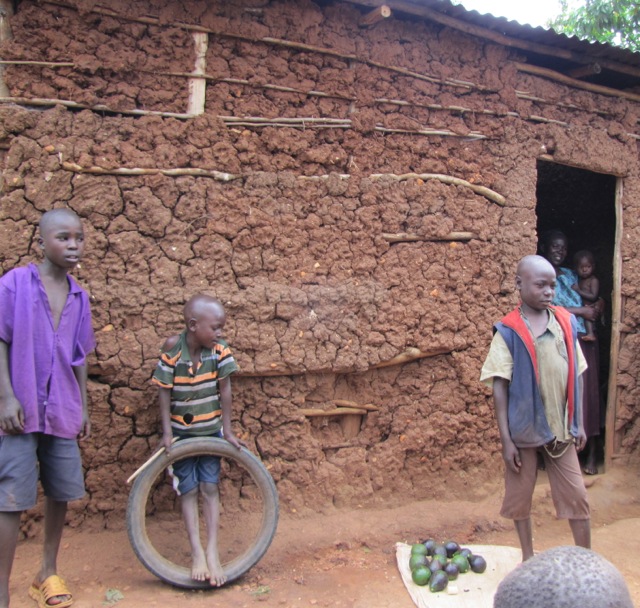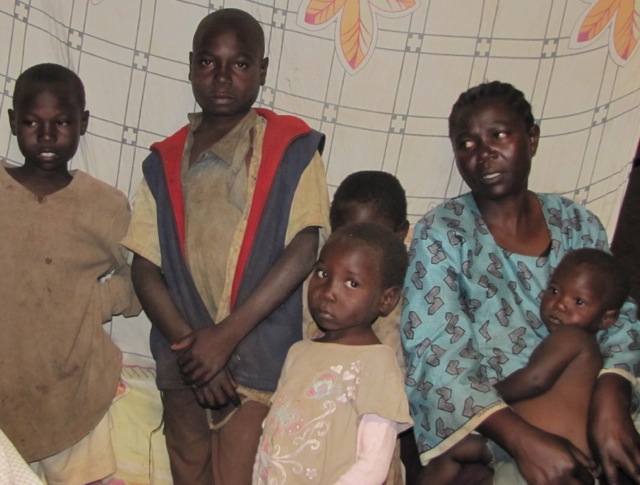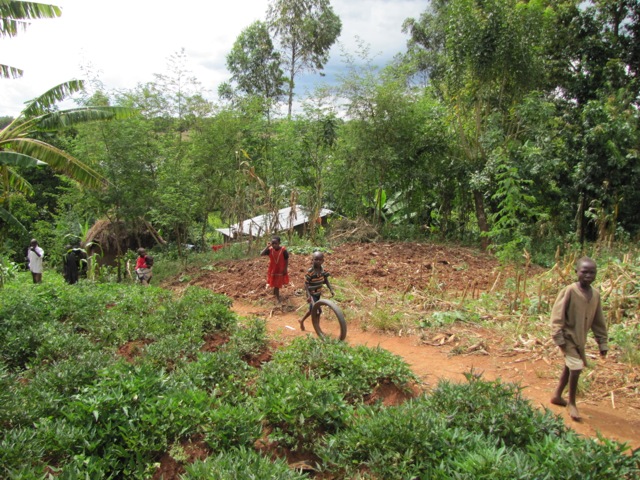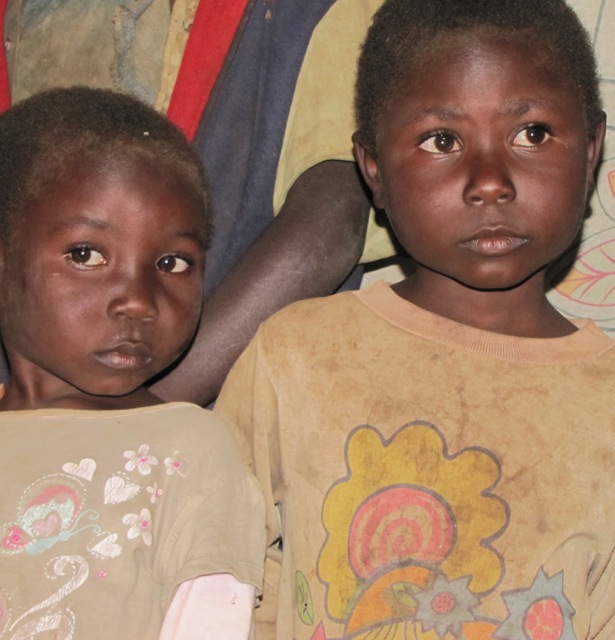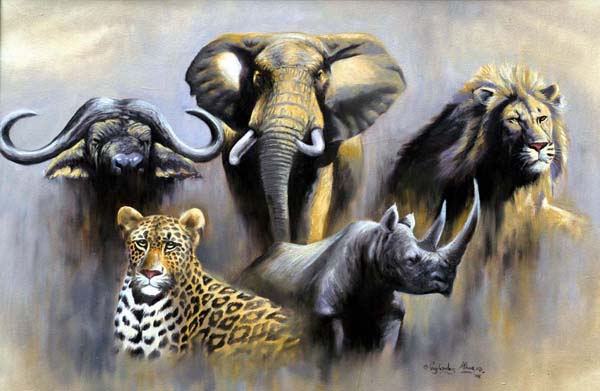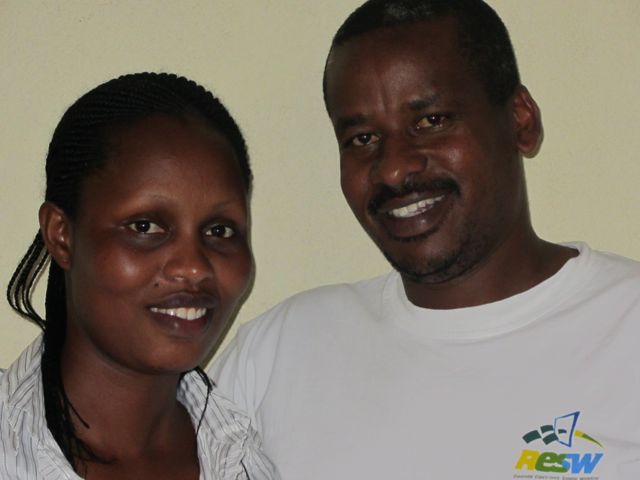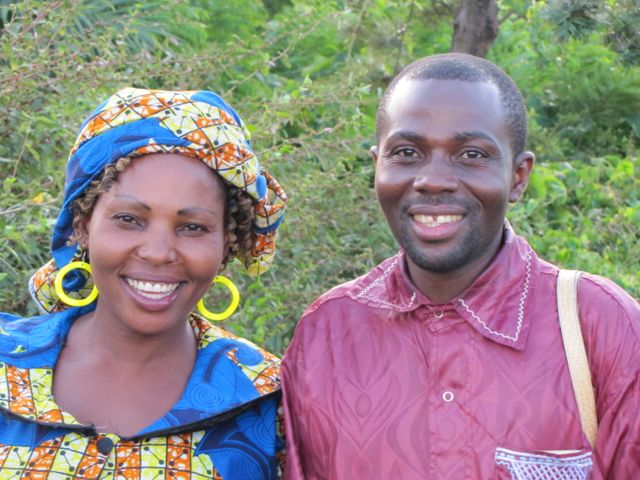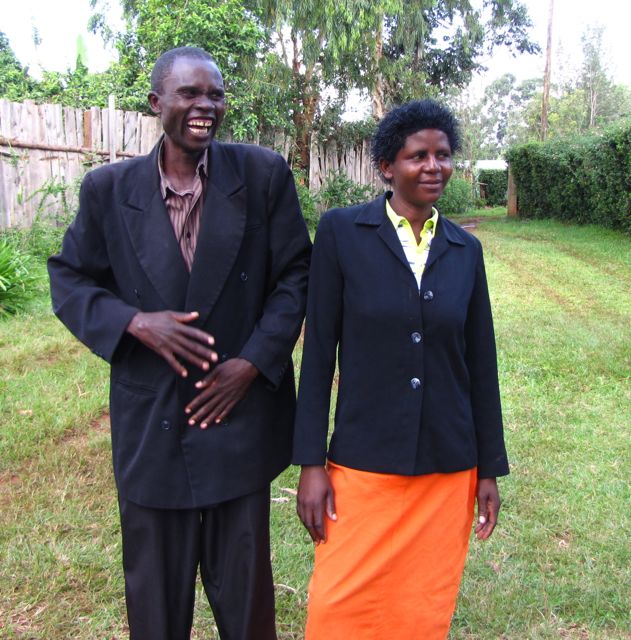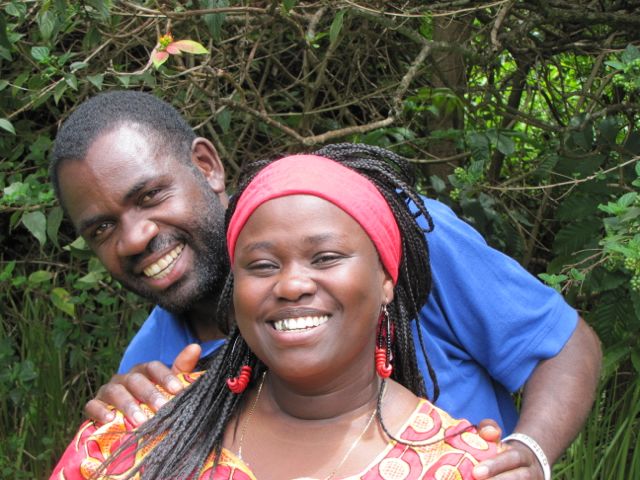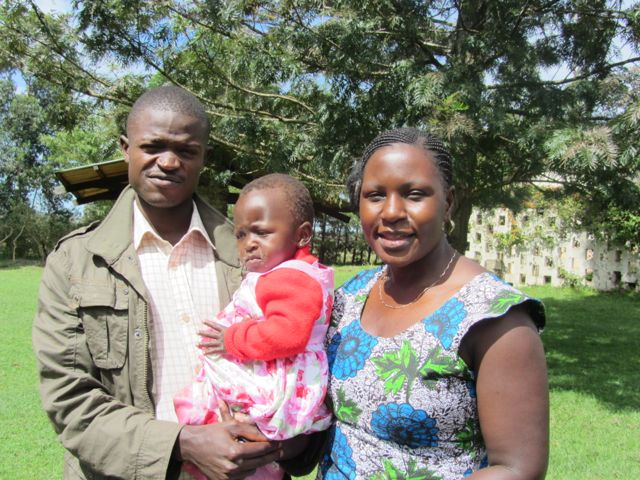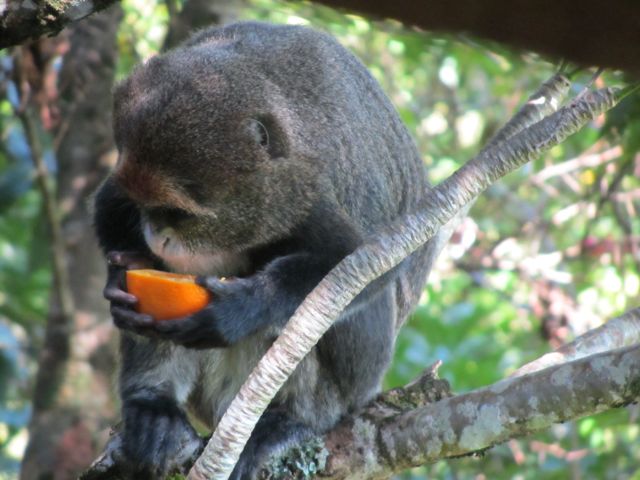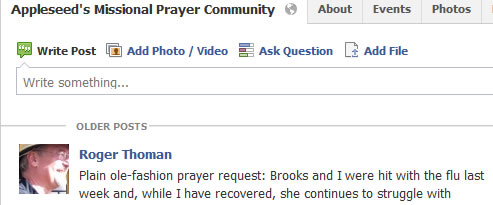— Face of Poverty
 Brooks
Brooks
Poverty is not just a word; it has a face … in fact many faces. Yesterday (two weeks ago now) was a fairly normal day for us while in Kitale. A friend picked us up in a rather questionable, but typical vehicle first thing. Well, first thing, Kenyan time. I think we set a time for around 9 and left around 11. As we drove away from our place, Roger sitting in the passenger's front seat, noted that he had no trouble at all being able to see John's foot pressing on the clutch … through the slit in the dash that used to house the radio. I had already spent some time circling the car, trying both rear doors just attempting to get inside the car before I was finally successful. That's the good news: there always seems to be a solution; it's just figuring it out. In this case, it was pulling up on what was left of the metal handle and lifting the door. Once I knew the trick, the door easily glided off its perch and allowed me to enter. Because of sealing issues, I soon realized that yes, again, I would need to sit on my pack. The backseat was soaked from the rain from the night before. And, then, there's the issue of trying to get out of the car. I was pretty much trapped until I could convince someone "the way" to open it.
But, this isn't an article to whine about African vehicles. And, in light of what the rest of the day held, my opinion about quality of travel diminished greatly. John, friend and Director of Liberty School, wanted us to go and meet a family he had heard about, but never visited. He had been speaking at a funeral and a lady, Evelyn, had heard about him and the work he did in Bikeke Village with kids. She had sought him out to explain that her neighbor was a grandmother, desperate, with five children to raise. They had nothing: no food, no clothes, little shelter, no blankets, no shoes and no, they did not attend school because the school fees are too great (at public school). John said he would visit and see what he could do.
So, off we trekked and I do mean trekked! Where in the U.S., we would only go with a huge Landcruiser or four-wheel drive, Africans comfortably drive with a small dilapidated Nissan! It seriously feels like you may as well be walking on rocky paths through the jungle. Finally, after stopping several times along the red, rocky road to ask for directions, we abruptly came to a halt where there were several mud block homes situated precariously on a downward slope. Everyone piled out with, of course, a crowd gathering to see who or what the wzungus were doing there. Being the only white folks just about everywhere we go is certainly a lesson in humility all by itself. But curious rural Kenyans have no problem coming up close, looking, questioning and anxious to come with us to find out what we are doing and more importantly, who we are doing it with.
Carefully, we walked the narrow pathway winding our way down a grassy hill with patches of maize and green beans planted alongside. The dirt was so packed down on the trail it was obvious that many bare feet had trampled up and down this hillside many times. Several homes were standing close together, clothes were hanging, mamas with babies on their hips, and curious children peered from door-less openings to see what all the commotion was about. Evelyn came anxiously running up from somewhere to take us to meet the grandmother and her kids. There they were. NOTHING!!! And, I mean nothing. I'm not sure whose home we were led into to have a "private" conversation, but it was one room, dark with no window, only the light from the doorway to show what lay inside. The tiny 12 X 12 room was carpeted with bare earth solidly packed, and several borrowed chairs of questionable stability. The seven children, age 24 down, stared at us, obviously bewildered by the whole situation. They were completely silent not knowing what to say, what to do. Swollen stomachs and reddening of their black hair spoke of their lack of nutrients for basic health. Their bare feet glared sickeningly at me as I knew that lack of shoes had caused them to suffer from the jiggers (parasites) that had found a home. I longed to take each one in my arms and somehow reassure them, comfort them, say or do anything that would tell them that they have value or importance. Instead, I had to surrender to the harsh and painful reality that I've come to know. The story the grandmother told us with Evelyn's encouragement is the same story of hundreds, if not thousands of women throughout all of Africa:
The husband died of HIV-AIDS (which is taboo to talk about), now the mom is very sickly and unable to take care of the kids, leaving them as "orphans," children whose parents have either died, abandoned or are unable to care for them. It's always the same: kids and more kids abandoned by parents through death or disillusionment. If relatives don't take them in, they go to live on the streets, joining a street "family" of other orphans. Some of them are "invited" by someone to work as a house girl or boy (involving no pay and no schooling and much physical and/or emotional abuse), but food and shelter are given as payment. Most, however, are reluctantly taken in by a grandmother or other relative who can barely provide for themselves … emotionally, physically or spiritually.
The amazing part of this particular story, though, is that Evelyn, who is married, has children, works hard at a small business of her own and does small farming, is giving to the poor in her community. By our standards, we would say that she has so little. Looking at her stained, ragged dress, I could easily see straight through it to her compassionate and loving heart. Even though these children are not her family or even her tribe, she has not been afraid to look squarely at starvation and depravation and ask the hard question, "What can (or should) I do in response to what I'm seeing?" I am so humbled, because despite the sacrifice, she shares what she has by allowing the children to come to her place often, feeding them as she can.
As we trekked back up to the car, other widows came with similar stories. Wherever we go, and mainly because so much of our work is in rural areas, we see, hear and touch this kind of severe poverty. It used to just be a word to me; now it has a face … many faces, and it can be overwhelming at times. Not unlike Evelyn, we force ourselves to look at it squarely and ask the hard question, "What is my part; what do I do in response to this?" The answers come as emotion subsides.
For these particular children? John, and the grandmother, are hopeful that they will be able to move from their village to Bikeke Village, where they will live at the orphanage being built at Liberty School. There John and his wife Naomi will live and care for the orphans who attend the school. That is our part; that is our hope.
